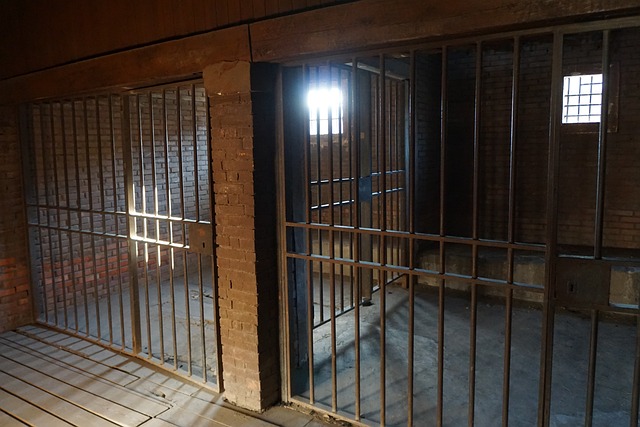Corporate DUI Awareness Workshops address loopholes in company policies that lead to employee irresponsible behavior involving alcohol, particularly during off-site events. These interactive sessions educate workers on legal repercussions of alcohol consumption and foster accountability. By highlighting issues like vague rules or inconsistent enforcement, the workshops promote responsible decision-making at social gatherings and ethical representation of companies. Through case studies, role-plays, and discussions, these workshops raise awareness about impaired driving dangers and motivate safer choices, ultimately reducing DUI incidents and promoting a safer work environment. Post-workshop, organizations should integrate learnings into policies, encourage open dialogue, and regularly review safety protocols for long-term compliance and behavioral change.
In today’s digital era, understanding and addressing Corporate DUI (Driving Under the Influence) policies is more critical than ever. Loopholes within these policies often create gaps in employee safety and company reputation, especially in vibrant, bustling industries. This article explores the impact of these loopholes and offers practical strategies to close them. Delve into learning about effective Corporate DUI Awareness Workshops as a game-changer for fostering safety and enhancing organizational integrity.
- Understanding Corporate DUI Policies and Their Loopholes
- The Impact of Loopholes on Employee Safety and Company Reputation
- Strategies to Close Gaps: Effective DUI Awareness Workshops
- Post-Workshop Implementation: Ensuring Long-Term Compliance and Change
Understanding Corporate DUI Policies and Their Loopholes

Many companies have implemented Corporate DUI Policies to promote employee safety and responsibility, but these policies often come with unforeseen loopholes that need addressing. These workshops aim to bridge these gaps by fostering a deeper understanding of existing rules and their potential for misuse. Through interactive sessions, employees learn about the legal implications of alcohol consumption during work hours and off-site company events, recognizing that even seemingly harmless actions can have severe consequences.
The focus here is not just on compliance but on cultivating a culture of accountability. By shedding light on common loopholes, such as vague language or inconsistent enforcement, these workshops empower employees to make informed decisions. They learn to navigate social gatherings and after-work celebrations mindfully, understanding their responsibilities as corporate representatives.
The Impact of Loopholes on Employee Safety and Company Reputation

Loopholes in corporate policies can have severe repercussions, especially regarding employee safety and a company’s reputation. These gaps often create an environment where employees may engage in risky behaviors, believing they are not being monitored or that consequences will be minimal. One prominent example is the lack of awareness around Corporate DUI (Driving Under the Influence) incidents. When companies fail to conduct regular workshops on alcohol awareness and the potential legal and safety implications, employees might not fully grasp the seriousness of operating heavy machinery or driving company vehicles while impaired.
As a result, such loopholes can lead to catastrophic accidents, injuries, or even fatalities. Moreover, it reflects poorly on the organization’s commitment to ethical conduct and employee welfare. By addressing these loopholes through comprehensive training programs like Corporate DUI Awareness Workshops, companies can foster a culture of responsibility and accountability. This proactive approach not only ensures legal compliance but also promotes a safer work environment, protecting both employees and the company’s image.
Strategies to Close Gaps: Effective DUI Awareness Workshops

Closing gaps in DUI (Drunk Driving Impairment) prevention requires strategic interventions, and one powerful tool is the implementation of Corporate DUI Awareness Workshops. These workshops are designed to educate employees about the dangers of impaired driving and promote responsible behavior. By offering interactive sessions, companies can empower their workforce with knowledge and encourage a culture of safety.
The effectiveness of these workshops lies in their ability to personalize content, making it relevant to various industries. Through case studies, role-plays, and engaging discussions, employees learn about the legal implications, personal risks, and societal impact of DUI. This not only raises awareness but also motivates individuals to make safer choices, ultimately reducing incidents related to drunk driving.
Post-Workshop Implementation: Ensuring Long-Term Compliance and Change

After completing a Corporate DUI Awareness Workshop, ensuring long-term compliance and behavioral change is paramount. This involves a systematic approach to post-workshop implementation, where organisations play a pivotal role in fostering a sustained culture of safety. One effective strategy is to integrate workshop learnings into existing company policies and procedures, making it an integral part of the organisation’s DNA. This can be achieved by assigning specific roles and responsibilities to employees, encouraging open dialogue, and regularly reviewing and updating safety protocols.
Additionally, providing ongoing support and reinforcement through regular training sessions, internal communication campaigns, and leadership commitment helps to solidify these messages. By creating a supportive environment where employees feel comfortable discussing safety concerns and reporting violations, organisations can effectively close gaps in DUI-related incidents. This proactive approach ensures that the workshop’s impact transcends short-term memory, leading to lasting behavioral changes among all stakeholders.
By understanding and addressing corporate DUI policies’ loopholes, organizations can significantly enhance employee safety and protect their reputation. Implementing effective Corporate DUI Awareness Workshops is a strategic step towards closing these gaps. Through comprehensive training, companies can foster a culture of responsible driving, ensuring long-term compliance and positive change. This proactive approach not only reduces risks but also demonstrates a commitment to workplace safety and ethical conduct.






